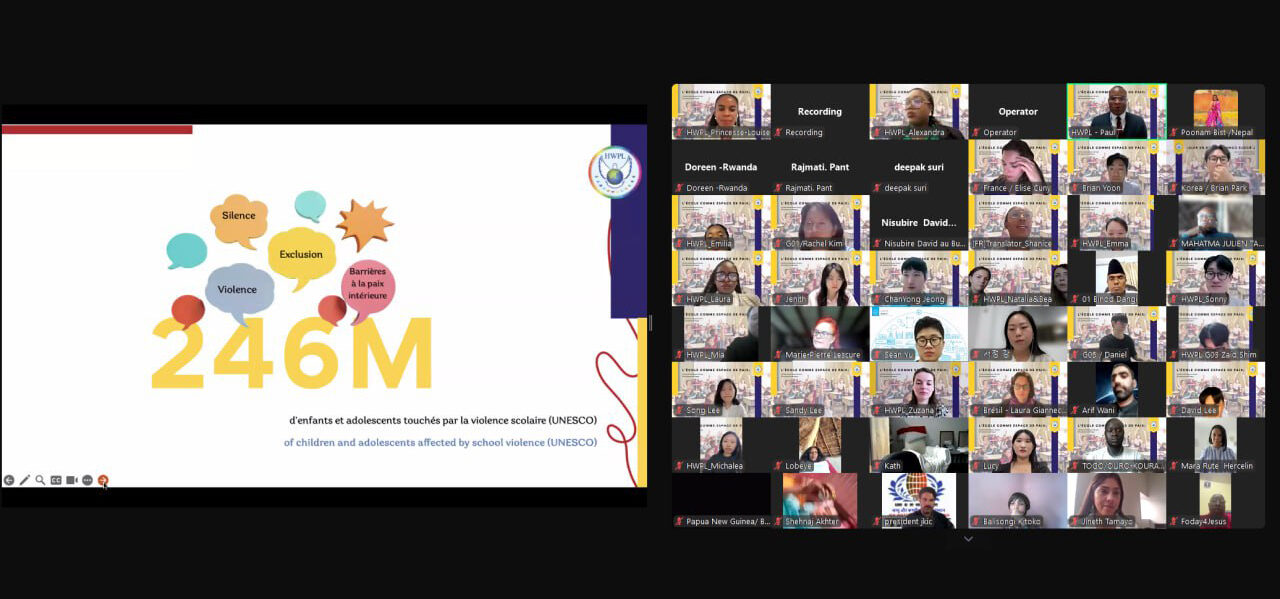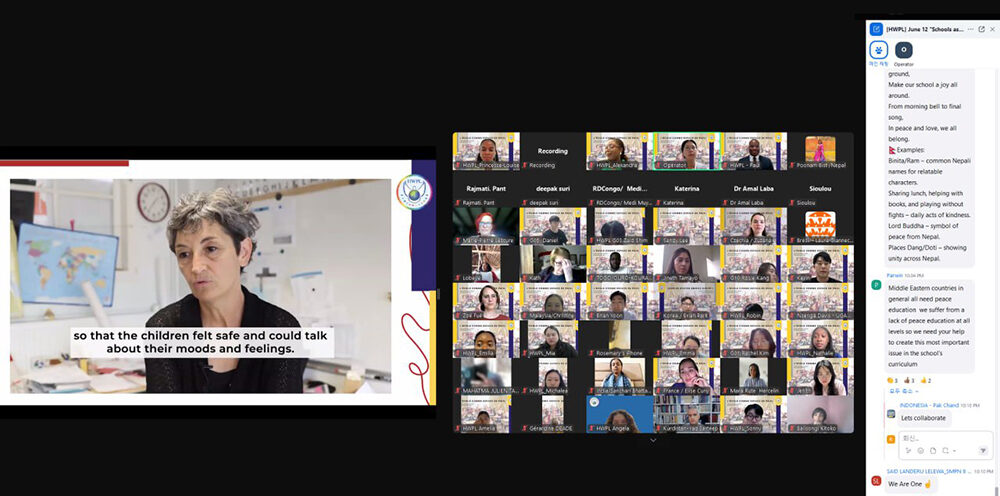[HWPL]
[HWPL] HWPL's Schools as Spaces of Peace
Chairman ManHee Lee is the head representative of the global peace organization HWPL (Heavenly Culture, World Peace, Restoration of Light), which is striving for the enactment and implementation of the international peace law 'Declaration of Peace and Cessation of War (DPCW)'. The DPCW is a legal instrument comprised of 10 articles and 38 clauses that can end wars and hostilities throughout the world. HWPL is also spreading a culture of peace and implementing peace education.
Chairman ManHee Lee experienced the cruelty and tragedy of war as a veteran of the Korean War. This is one of the reasons why he founded a global peace campaign as the head of HWPL. He has traveled the globe more than 35 times to meet and persuade politicians, legal experts, journalists, professors, peace activists, civil organization leaders, heads of tribes and others to unite them for the work of peace. The significant fruits borne out of his hard work are the World Alliance of Religions' Peace (WARP) Summit and HWPL Peace Committee. The DPCW was drafted and finalised by the HWPL Peace Committee.
How, you may wonder, do I know this? About 10 years ago, when I had just been discharged from military service, I came to know HWPL and Chairman ManHee Lee while researching the topic of civil conflicts to satisfy my curiosity in ongoing global issues. At that time, the island of Mindanao in the Philippines was suffering from a major civil conflict that lasted more than 40 years, and Chairman ManHee Lee and HWPL resolved this conflict through non-violent means.
Chairman Lee brought an end to the conflict in Mindanao by holding a peace talk between the warring Catholic and Islamic groups. Before the talk, HWPL and Chairman ManHee Lee held a Peace Walk to spread the culture of peace in Mindanao with the many locals who had gathered out of a desire for peace.
Chairman ManHee Lee's pressing appeal today is that humanity unites for sustainable peace in order to pass on the legacy of peace to future generations worldwide. He doesn't just talk peace, but has worked tirelessly for it through practical peace campaigns for over a decade.
I decided to become a supporter of HWPL and Chairman ManHee Lee's peace initiatives because I also desire a world of peace for all posterity.
Today I'd like to introduce an article regarding HWPL's Schools as Spaces of Peace event :)
Schools as Spaces of Peace – Preventing Violence and Promoting Global Citizenship

On June 12, HWPL hosted an international event titled, “Schools as Spaces of Peace – Preventing Violence and Promoting Global Citizenship,” together with the Permanent Delegations of South Sudan, Libya, Burundi, Yemen, and Togo to UNESCO, and the National Commissions for UNESCO of Jamaica, Equatorial Guinea, Central African Republic, Congo, and the Democratic Republic of the Congo. The online event was also hosted together with the Center for Advanced Studies in Education and Sustainable Development (CLADE), the Latin American Campaign for the Right to Education, and UNESCO Artists for Peace.
Approximately 300 key figures in the field of education attended the event. HWPL’s major initiative of peace education and UNESCO’s core focus areas—global citizenship education, human rights, and the development of a culture of peace—were discussed. The importance of global participation and the need for practical activities, as demonstrated by national case studies, were particularly emphasized.

“HWPL’s belief is simple: building lasting peace begins early. Peace must become a shared language and like any language, it can be taught, learned, and practiced,” said HWPL France Managing Director Marc d’Almeida in his opening remarks. “Through curricula, safe and inclusive school environments, well-trained teachers, and an education system that embraces diversity, schools can, and must become spaces where students not only learn to read and write, but also to understand, to collaborate, and to resolve conflict peacefully.”
The Democratic Republic of the Congo, Cyprus, and Libya shared examples of implementing peace education in their national schools, highlighting the tangible need for peace education.

Additionally, during the roundtable discussions, practical cases of peace education through cultural diversity were shared.
“Violence is simply the expression of an inner suffering,” said Mara Rute Hercelin, CEO of CLADE, who presented a short video of educational activities. “By taking care of one another, we can establish peace — in our hearts and in the world.”
Various ways for schools to become spaces of peace were discussed at the event, including solutions to current issues, such as bullying.
The event concluded with participants urging for support for the “Supporting Statement for the Promotion of a Culture of Peace and the Implementation of Peace Education,” aimed at ensuring that peace activities in schools go beyond sharing examples and lead to concrete actions.







No comments:
Post a Comment